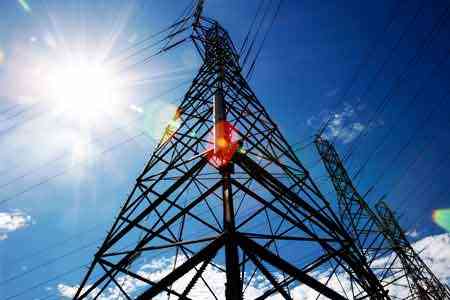


ArmInfo. Yerevan is trying to fit into the field of anti-Iranian sanctions, demonstrating to the Anglo-Saxon 'bosses' its readiness to reduce economic cooperation with Iran significantly Political scientist, Doctor of Political Sciences Vahe Davtyan wrote on his Facebook page, commenting on the decision of the RA government to liquidate Energoimpex JSC.
According to the political scientist, Energoimpex is a state company founded in 2016 to further develop the Armenian-Iranian energy relations. In particular, the company was supposed to work within the framework of the Armenian-Iranian "electricity in exchange for gas" barter deal aimed at deepening cooperation and constantly increasing volumes. In fact, according to the expert, the liquidation of the company has a pronounced geopolitical and geo-economic significance. "Essentially, it means that Armenia does not consider the development of an "energy dialogue" with Iran in the context of state protectionist policy. Meanwhile, this is extremely necessary, given the tasks of diversifying the methods and directions for ensuring Armenia's energy security. "Just building solar power plants does not develop the energy system," Davtyan emphasized. He added that the government's decision means that Yerevan is trying to fit into the field of anti-Iranian sanctions, showing the Anglo-Saxon 'bosses' its readiness to reduce economic cooperation significantly with Iran. Meanwhile, the political scientist recalled, since 1997, when the D'Amato Law was adopted in the United States (the application of sanctions in case of implementation of projects with Iran exceeding $40 million), Armenia has been dynamically developing economic ties with Iran, to which, by the way, Washington always treated with understanding, never considering these relations in the context of sanctions.
Davtyan emphasized that the liquidation of Energoimpex is also a symbolic step. "To understand this, it is enough to remember that the company was established synchronously with the formation of the Iran- Armenia-Georgia gas swap corridor. The company was also supposed to act as the Armenian operator of this corridor. By and large, this is a step against the North-South logistics strategy," according to which Iran claims to enter third markets, including Russia, through the South Caucasus," the political scientist emphasized.
He noted that the decision fits into the logic of the policy of liberalizing the electricity market in Armenia, which in itself is very problematic and even risky from the point of view of ensuring energy security. By de facto liberalizing the import and export of electricity, the government has demonstrated that it has no priority in foreign markets. Meanwhile, the Iranian direction has always been key in Armenia's energy policy. "This, in turn, means that just as we lost the Georgian electricity market, we will soon lose the Iranian one," the political scientist stated.
READ ALL COMMENTS